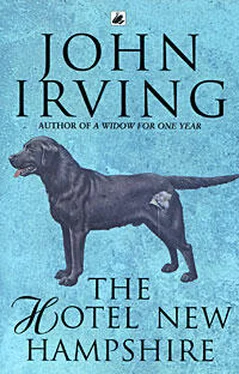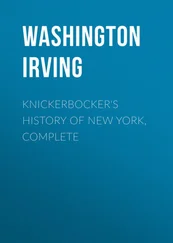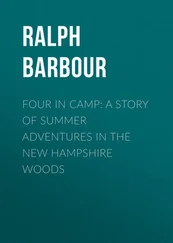That first time I don’t remember Lilly or Egg—they must have been such babies that they were not present, in a conscious way. “He was too old to be a bear anymore,” Father said. “He was on his last legs.”
“But they were the only legs he had!” we would chant, our ritual response—learned by heart—Frank, Franny, and I all together. And when they got the story down pat, eventually Lilly and even Egg would join in.
The bear did not enjoy his role as an entertainer anymore,” Father said. “He was just going through the motions. And the only person or animal or thing he loved was that motorcycle. That’s why I had to buy the motorcycle when I bought the bear. That’s why it was relatively easy for the bear to leave his trainer and come with me; the motorcycle meant more to that bear than any trainer.”
And later, Frank would prod Lilly, who was trained to ask, “What was the bear’s name?”
And Frank and Franny and Father and I would shout, in unison, “State o’Maine!” That dumb bear was named State o’Maine, and my father bought him in the summer of 1939—together with a 1937 Indian motorcycle with a homemade sidecar—for 200 dollars and the best clothes in his summer footlocker.
My father and mother were nineteen that summer; they were both born in 1920 and raised in Dairy, New Hampshire, and had more or less avoided each other through the years they were growing up. It is one of those logical coincidences upon which many good stories are founded that they—to their mutual surprise—ended up having summer jobs at the Arbuthnot-by-the-Sea, a resort hotel that was, for them, far away from home, because Maine was far from New Hampshire (in those days, and to their thinking).
My mother was a chambermaid, although she dressed in her own clothes for serving dinner, and she helped serve cocktails under the tents to the lawn parties (which were attended by the golfers, the tennis and croquet players, and the sailors home from racing on the sea). My father helped in the kitchen, carried luggage, hand-groomed the putting greens, and saw to it that the white lines on the tennis courts were fresh and straight and that the unsteady people who should not have been on board a boat in the first place were helped on and off at dockside with a minimum of injury or getting wet.
They were summer jobs both my mother’s and father’s parents approved of, although it was a humiliation to Mother and Father that they should discover each other there. It was their first summer away from Dairy, New Hampshire, and they no doubt imagined the posh resort as a place where they could present themselves—total strangers—as also somewhat glamorous. My father had just graduated from the Dairy School, the private boys” academy; he’d been admitted to Harvard for the fall. He knew it would be the fall of 1941 before he’d finally get to go, because he’d set himself the task of making money for his tuition; but at the Arbuthnot-by-the-Sea in the summer of ’39 my father would have been happy to let the guests and other help think he was headed for Harvard straight away. My mother being there, with her hometown knowledge of his circumstances, forced Father to tell the truth. He could go to Harvard when he made the money for what it would cost; it was some accomplishment that he could go at all, of course, and most of the people of Dairy, New Hampshire, had been surprised to learn he’d even been admitted to Harvard.
The son of the football coach at the Dairy School, my father, Winslow Berry, was not quite in the category of a faculty child. He was a jock’s only son, and his father, whom everyone called Coach Bob, was not a Harvard man—he was thought incapable, in fact, of producing Harvard material.
Robert Berry had come East from Iowa when his wife died in childbirth. Bob Berry was a little old to be single and a first-time father—he was thirty-two. He came searching for an education for his baby boy, for which he offered himself, in trade, for the process. He sold his physical education abilities to the best prep school that would promise to take his son when his son was old enough to go. The Dairy School was not a bastion of secondary school education.
It might have once wished for a status equal to Exeter’s or Andover’s, but it had settled, in the early 1900s, for a future of compromise. Near to Boston, it admitted a few hundred boys who had been turned down by Exeter and Andover, and a hundred more who shouldn’t have been admitted anywhere, and it gave them a curriculum that was standard and wise—and more rigorous than most of the faculty who were employed to teach there; most of them had been turned down elsewhere, too. But, even second-rate among New England prep schools, it was far better than the area public schools and especially better than the only high school in the town of Dairy.
The Dairy School was just the kind of school to make deals, like the one it made with Coach Bob Berry, for a piddling salary and the promise that Coach Bob’s son, Win, could be educated there (for free) when he was old enough. Neither Coach Bob nor the Dairy School was prepared for how bright a student my father, Win Berry, would turn out to be. Harvard accepted him among the first class of applicants, but he was ranked below scholarship level. If he’d come to them from a better school than Dairy, he probably could have won some kind of Latin or Greek scholarship; he thought he was good at languages and at first wanted to major in Russian.
My mother, who (being a girl) could never go to the Dairy School, attended the private female seminary also in town. This was another second-rate education that was nonetheless an improvement over the public high school, and the only choice of the town’s parents who wished their daughters to be educated without the presence of boys. Unlike the Dairy School, which had dormitories—and 95 percent boarding students—the Thompson Female Seminary was only a private day school. My mother’s parents, who for some reason were even older than Coach Bob, wished that their daughter would associate only with the Dairy School boys and not with the boys from the town—my mother’s father being a retired Dairy School teacher (everyone called him Latin Emeritus) and my mother’s mother being a doctor’s daughter from Brookline, Massachusetts, who had married a Harvard man; she hoped her daughter might aspire to the same fate. Although my mother’s mother never complained that her Harvard man had whisked her away to the sticks, and out of Boston society, she did hope that—through meeting one of the proper Dairy School boys—my mother could be whisked back to Boston.
My mother, Mary Bates, knew that my father, Win Berry, was not the proper sort of Dairy boy her mother had in mind. Harvard or no Harvard, he was Coach Bob’s son—and a delayed admission was not the same thing as being there, or being able to afford to go.
Mother’s own plans, in the summer of ’39, were hardly appealing to her. Her father, old Latin Emeritus, had suffered a stroke; drooling and addled, and muttering in Latin, he would totter about the Dairy house with his wife ineffectually worrying about him unless young Mary was there to look after them both. Mary Bates, at nineteen, had parents older than most people’s grandparents, and she had the sense of duty, if not the inclination, to pass up the possibility of her own college education to stay at home and care for them. She thought she would learn how to type and work in the town. This summer job, at the Arbuthnot, was really meant to be an exotic summer vacation for her before she settled into whatever drudgery the fall would bring. With every year, she looked ahead, the Dairy School boys would get younger and younger—until none of them would be interested in whisking her back to Boston.
Читать дальше












